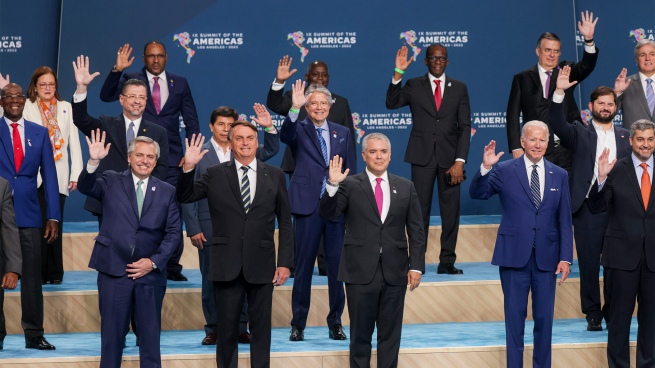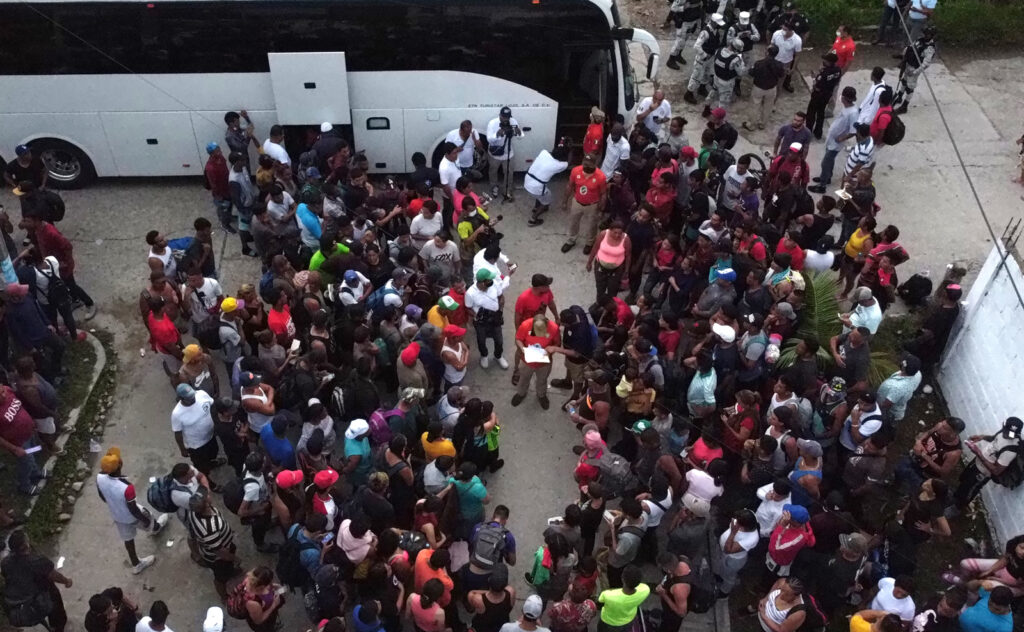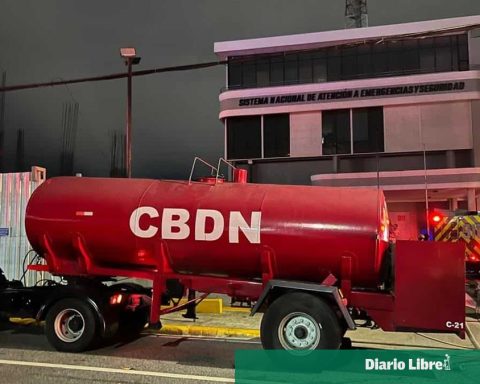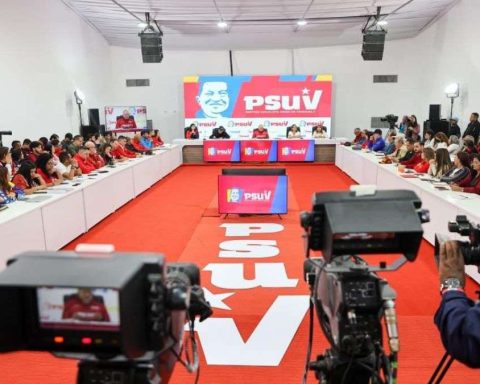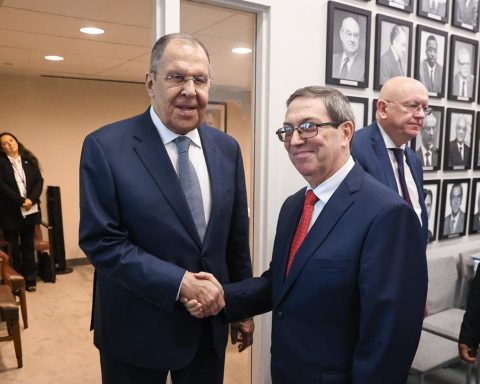The cry breaks the silence and interrupts the OAS Secretary General during an event on the sidelines of this week’s Summit of the Americas in Los Angeles: “Luis Almagro, you have blood on your hands! Because of you, there was a coup in Bolivia!”.
Almagro shouts at the young man to retract and not lie, before an amazed audience of students who look at each other, nervous officials, policemen who are preparing to intervene and photographers and cameramen who are looking for the best angle of the scandal.
In the end, it wasn’t that bad. American socialist activist Walter Smolarek was dragged out by the police and quickly released without charge, on the street two floors below. But his clamor seemed to resonate beyond that Los Angeles hotel.
The next day, the president Alberto Fernández asked his American counterpart Joe Biden and the other American leaders for a reform of the Organization of American States (OAS) and the removal of Almagro for “facilitating” a coup in Bolivia in 2019.

On Friday, Mexico’s foreign minister supported Fernández’s proposal in his speech at the summit.
Having given such centrality to the defense of democracy at the first Summit of the Americas since the coup in Bolivia against former President Evo Morales does not seem to have been the best calculation of the Biden government.
The previous US administration of Donald Trump and Almagro recognized at the time the de facto authorities of Bolivia, who today are being tried.
Nor does it seem to have been Washington’s best reading of the regional political landscape.

The Los Angeles summit should have been held last year, but was postponed due to the coronavirus. Since the previous Summit of the Americas, in Lima, Peru, in April 2018, a lot of water has flowed under the bridge in the region.
One month after, Nicholas Maduro he was re-elected in Venezuela. A few days later, opposition leader Juan Guaidó proclaimed himself Venezuelan president. Trump recognized it immediately. The OAS declared Maduro’s mandate illegitimate.
Eight months after the Lima summit, Andres Manuel Lopez Obrador he became the first leftist president of Mexico in recent history elected in fully democratic elections.
Months later, in October 2019, Morales he was re-elected in Bolivia. The opposition denounced fraud and called for protests, and the president resigned under pressure from the Army and the police. He was illegally replaced by Jeanine Anez, sentenced this Friday to 10 years in prison for the coup.
Days later, Almagro called Áñez “president of the provisional government of Bolivia” after having spoken of alleged irregularities in the elections.
The following month, Fernández came to power in Argentina. With his help, Morales went into exile first in Mexico and then in Argentina and then returned to Bolivia.

His socialist party won the elections in 2020 and regained power, led by Luis Arce. Áñez was sentenced yesterday to 10 years in prison for the way in which she assumed the Presidency.
This year, three leftist rulers replaced others from the right in Chile, Peru and Honduras: Gabriel Boric, Pedro Castillo and Xiomara Castro.
In Brazil, the former president Luiz Inacio Lula da Silva he is the favorite for the October elections, while in Colombia former senator Gustavo Petro may make history this month and become the country’s first left-wing president.
In this context, the Biden government thought it was a good idea to exclude Cuba, Nicaragua and Venezuela from the Los Angeles summit for being undemocratic.
The consequences were predictable.
López Obrador confirmed that he would not be present the same day the summit began, and his planned boycott had already been joined by Arce, Castro and other Central American leaders.

The United States tried to turn the page quickly by announcing this week with great fanfare in Los Angeles a series of initiatives for the region, but that did not prevent the controversy from accompanying the summit until the end.
The speeches at the meetings of leaders gave Fernández, Boric, and Mexican Foreign Minister Marcelo Ebrard the opportunity they were seeking to make their discontent heard by Biden.
“Being the host country of the Summit does not grant the ability to impose a right of admission on the member countries of the continent”Fernandez raised.
“The architecture, foundations and function of the Organization of American States is exhausted. (…) I am only collecting what I have heard, plus what is our position as well, and we join them,” declared Ebrard.
The public display of division and recriminations was another diplomatic setback for the US government, in addition to the absences.
Biden had designed the summit in order to give China’s investments in the Americas a little more fight and to be diligent on continental issues with an impact on his country that add votes to him in a key election year, such as immigration.
China finances large infrastructure projects in Latin America and the Caribbean, on the doorstep of the United States.
The Biden government tried to rival China with state funds, but the laws to do so are blocked in Congress by the Republican opposition. So he tried to enlist the big corporations to take over the effort in the meantime.
The result was that all economic aid measures to the region announced by the United States during the summit were private investment commitments.

Paradoxically, the only direct monetary contribution from the United States for the region announced this week in Los Angeles was 331 million dollars to prevent food insecurity, an issue that was not on the agenda of the meeting.
Inflation in the United States, one of the issues that Biden is most criticized for, reached its year-on-year record in May, standing at 8.6%, while Washington sends weapons to Ukraine so that it can sustain the war against Russia, which Food prices have skyrocketed.
While the leaders resumed the plenary sessions of the summit on Friday, Biden finally spoke of inflation and measures to contain it, but not in the meeting with his American peers, but in a speech in the port of Los Angeles, for an internal audience.
